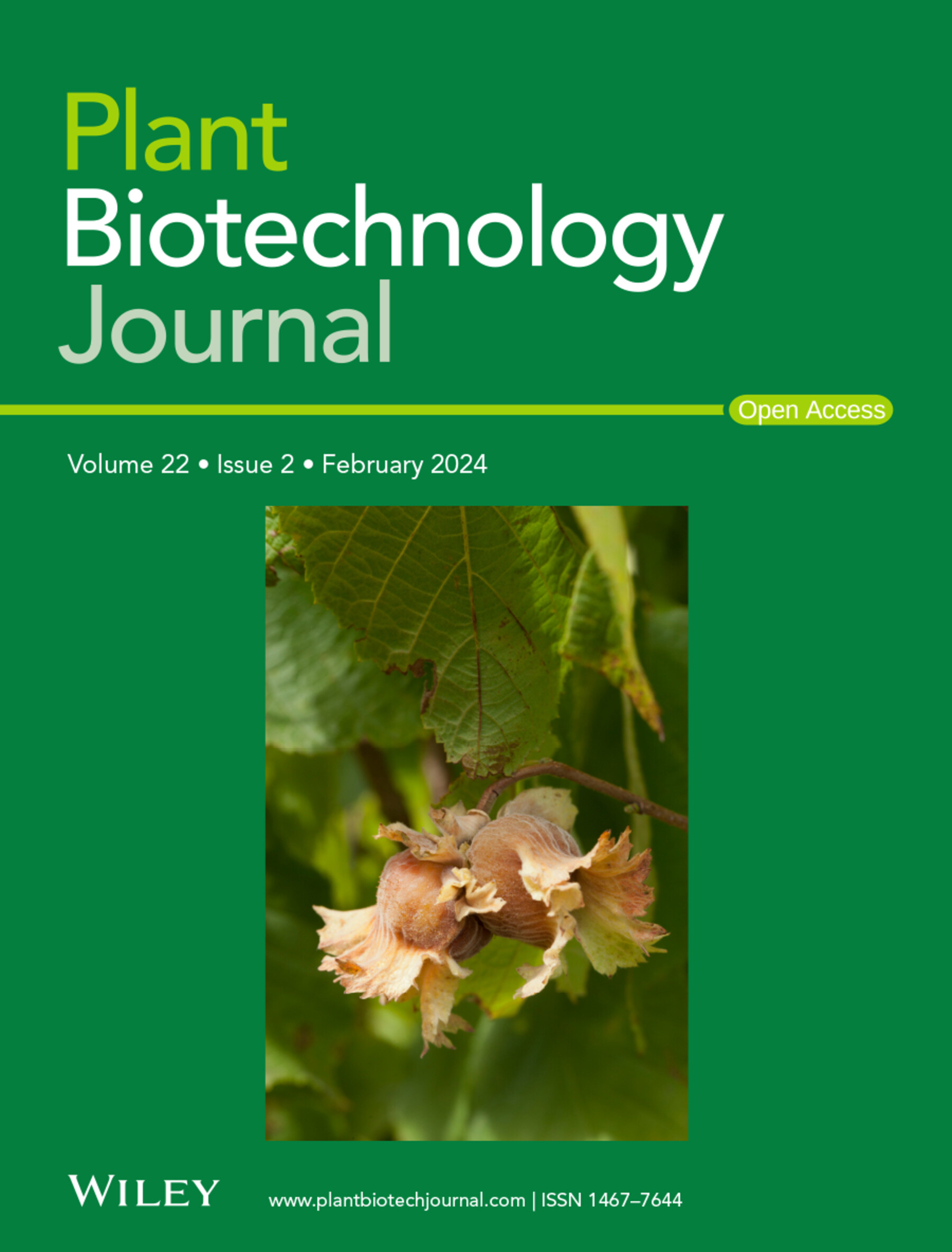Past innovations and future possibilities in plant chromosome engineering
IF 10.1
1区 生物学
Q1 BIOTECHNOLOGY & APPLIED MICROBIOLOGY
引用次数: 0
Abstract
Plant chromosome engineering has emerged as a pivotal tool in modern plant breeding, facilitating the transfer of desirable traits through the incorporation of alien chromosome fragments into plants. Here, we provide a comprehensive overview of the past achievements, current methodologies and future prospects of plant chromosome engineering. We begin by examining the successful integration of specific examples such as the incorporation of rye chromosome segments (e.g. the 1BL/1RS translocation), Dasypyrum villosum segments (e.g. the 6VS segment for powdery mildew resistance), Thinopyrum intermedium segments (e.g. rust resistance genes) and Thinopyrum elongatum segments (e.g. Fusarium head blight resistance genes). In addition to trait transfer, advancements in plant centromere engineering have opened new possibilities for chromosomal manipulation. This includes the development of plant minichromosomes via centromere-mediated techniques, the generation of haploids through CENH3 gene editing, and the induction of aneuploidy using KaryoCreate. The advent of CRISPR/Cas technology has further revolutionized chromosome engineering, enabling large-scale chromosomal rearrangements, such as inversions and translocations, as well as enabling targeted insertion of large DNA fragments and increasing genetic recombination frequency. These advancements have significantly expanded the toolkit for genetic improvement in plants, opening new horizons for the future of plant breeding.植物染色体工程过去的创新和未来的可能性
植物染色体工程已成为现代植物育种的关键工具,通过将外来染色体片段整合到植物中,促进理想性状的转移。本文就植物染色体工程的研究进展、研究现状及发展前景作一综述。我们首先考察了成功整合的具体例子,如黑麦染色体片段(如1BL/1RS易位)、卷叶稻片段(如抗白粉病的6VS片段)、薄叶稻中间片段(如抗锈病基因)和长叶稻片段(如抗枯萎病基因)的整合。除了性状转移外,植物着丝粒工程的进展为染色体操纵开辟了新的可能性。这包括通过着丝粒介导技术开发植物小染色体,通过CENH3基因编辑产生单倍体,以及使用KaryoCreate诱导非整倍体。CRISPR/Cas技术的出现进一步革新了染色体工程,使大规模的染色体重排,如倒位和易位,以及大DNA片段的靶向插入和基因重组频率的增加成为可能。这些进步极大地扩展了植物遗传改良的工具箱,为植物育种的未来开辟了新的视野。
本文章由计算机程序翻译,如有差异,请以英文原文为准。
求助全文
约1分钟内获得全文
求助全文
来源期刊

Plant Biotechnology Journal
生物-生物工程与应用微生物
CiteScore
20.50
自引率
2.90%
发文量
201
审稿时长
1 months
期刊介绍:
Plant Biotechnology Journal aspires to publish original research and insightful reviews of high impact, authored by prominent researchers in applied plant science. The journal places a special emphasis on molecular plant sciences and their practical applications through plant biotechnology. Our goal is to establish a platform for showcasing significant advances in the field, encompassing curiosity-driven studies with potential applications, strategic research in plant biotechnology, scientific analysis of crucial issues for the beneficial utilization of plant sciences, and assessments of the performance of plant biotechnology products in practical applications.
 求助内容:
求助内容: 应助结果提醒方式:
应助结果提醒方式:


